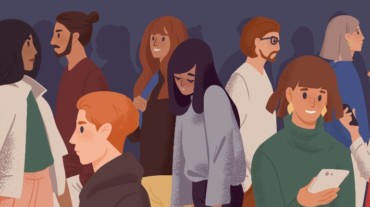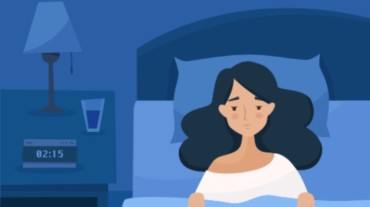
Depression, no matter how understated, is a matter of serious concern. It could be something you’ve struggled with all your life or something you’ve developed over time but the bottom line is that you need to seek help for it so that you can manage your mental health.
We talked to Dr. Ishita Mukerji, senior psychologist, Kaleidoscope Mental Wellness Centre, who emphasizes on the importance of seeking professional help.
The first step, however, she believes is being able to identify the events in our lives that could have put us at risk of developing depression. To identify these risk factors is the first step towards the process of healing.
Let us take a look at some of the factors that could be affecting your mental health in a way that could lead to depression:
1. Major life changes and stress
A depressive episode can be triggered by a stressful and draining life event. Such stressful events may include an irreparable loss, a difficult relationship, separation or even the memory of traumatic experiences from the past that has had a lasting impact on you.
“These days, we also see a lot of cases caused by problems in the marriage or even relocation which may have caused difficulty in being able to adjust to the new lifestyle and new environment. Such life-altering decisions seem to instigate episodes of depression even though they don’t necessarily have a negative connotation to them,” Dr Mukerji adds.

2. Family history of mental illness
People with a family history of depressive disorders are more likely to develop the condition. Even though it is not clear how but it is believed that the condition can be passed on.
3. Chronic or prolonged physical disorders
Even unforeseen or unwanted physical changes in the body can induce mental changes. Dr Mukerji explains that people who suffer from an illness such as a stroke, cancer, Parkinson’s disease or the likes, are more prone to be depressed.
“Depression is said to be associated with chronic pain. Not only that, even being under medication puts you at the risk of being depressed,” she says.

4. Psychological factors
Dr Mukerji believes that people with low self-esteem, who are consistently critical about themselves and get easily overwhelmed by stress, have a higher risk of being depressed.
Select Topics of your interest and let us customize your feed.
PERSONALISE NOWDepression is also more common in people with chronic anxiety disorders and amongst those who are hypersensitive to loss and rejection.
5. Low socioeconomic status
A lot of factors such as low social status, cultural factors, financial problems, and daily stress put us at risk of depression. As per Dr Mukerji, it so happens that we constantly compare ourselves with those who are better off on the grounds of what they possess. Our obsession with what we lack turns into negative thoughts of jealousy, angst. That is what makes us prone to depression.
6. Gender identity
Hormonal factors put women at a higher risk of being depressed. Dr Mukerji says, “Women experience depression more often than men. It is factors such as premenstrual changes, pregnancy, miscarriage, postpartum period and menopause that contribute a lot to this risk. The fact that women also have added responsibilities of taking care of the household, the children or ageing parents could make them more prone to depression.”

7. Insomnia and sleep disorders
Chronic sleep problems are also very strongly associated with depression. Both the body and the mind require adequate rest to be able to effectively carry out all the functions that they do throughout the day. So, if you are having trouble sleeping even after a tiring day, we suggest you consult a doctor before it gets complicated.
It is true that depression can happen to anyone but it is important to also be aware of that fact that our surroundings could be causing it. Being able to identify the reasons behind it could help us make necessary changes and manage our mental health better.